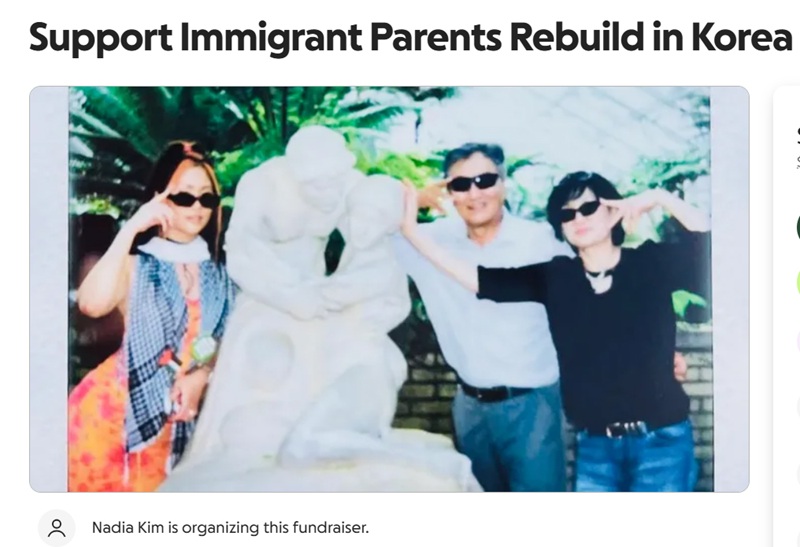They came with hope. They stayed with hard work. They paid their taxes, played by the rules as best they could, and built a quiet life over decades. And now, after 26 years in Los Angeles, an elderly Korean couple in their seventies is leaving the United States—not because they want to, but because America’s immigration climate under the Trump administration has made it impossible for them to remain.
The couple’s daughter, Nadia Kim, recently launched a GoFundMe campaign to help her parents start over in South Korea. She explained that her father, once the primary breadwinner, lost his job as a gig driver when immigration enforcement intensified.

Without work authorization, he was unable to find other employment. Months of unemployment depleted their savings. Fear and uncertainty did the rest. “They have always worked hard to make ends meet,” she wrote, “but in this worsening situation, they could no longer hold on.”
These are not people who skirted civic responsibility. Despite their undocumented status, they paid taxes for decades. They will leave behind nearly everything—except for clothes and a few mementos—because their status bars them from collecting Social Security benefits. The money raised will go toward airfare and initial living expenses in Korea. As of August 14, the campaign had raised $9,678.
Their departure is part of a larger, troubling trend. According to estimates cited by U.S. media, more than 1 million undocumented immigrants left the United States in the first half of this year alone. While 253,000 were deported by the end of July, roughly 750,000 left voluntarily, at their own expense, simply because life here had become unbearable.
The Trump administration has aggressively expanded “self-deportation” tactics: accelerating deportation orders by dismissing immigration court cases en masse, ending humanitarian protections such as Temporary Protected Status, and scaling back parole programs. Even DACA (Deferred Action for Childhood Arrivals) recipients—long shielded from removal—now face detention for minor infractions, with officials openly urging them to give up on renewal and “choose” to leave.
The Korean couple’s story is just one among hundreds of thousands, but it reveals the human cost of policies designed not only to remove people but to make them so fearful and hopeless that they walk away from the lives they built.
This is not just an immigration story. It is a question of what kind of country America chooses to be—and whether it can reconcile its self-image as a nation of opportunity with an immigration system that drives out the very people who have proven, through decades of work and contribution, that they belong.
By Mooyoung Lee [lee.mooyoung@koreadaily.com]



